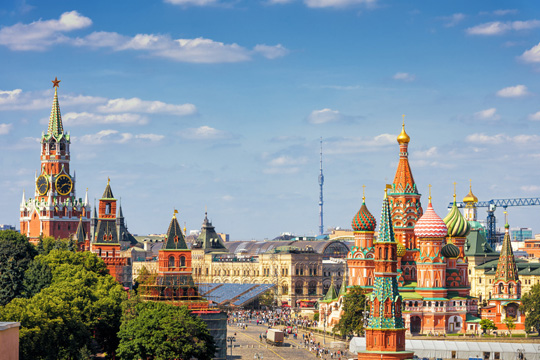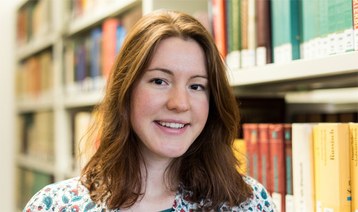From Russia with Love
Freiburg, Jan 17, 2018
Questioning cultural stereotypes, getting to know traditions of thought and understanding historical backgrounds: Through their master’s degree program “Russian Studies: Literature, History and German-Russian Cultural Contact,” students from Freiburg and Moscow learn about the things that have helped shaped the country. In addition, they develop intercultural skills that could assist in a career in international institutions. Together with the Russian State University, the University of Freiburg offers a degree program in humanities in Moscow. A series introduces six additional international cooperations.
 Photo: scaliger/ Fotolia
Photo: scaliger/ Fotolia
In our globalized world, intercultural experiences and skills are required not only in business and politics. The master’s degree program “Russian Studies: Literature, History and German-Russian Cultural Contact” prepares students for these demands. What does the program entail? Stemming from the degree program “International Literary Science: German-Russian Transfer” in 2008, the new name clearly shows the direction the journey is headed: The interdisciplinary focus has been extended to include the study of history, that is to say, German-Russian history from the 18th century onwards.
Sharing daily life
“The notion of transfer, however, has remained the common denominator,” explains Dr. Elke Schumann, who helps coordinate the degree program as a research associate. It is headed by Elisabeth Cheauré, Professor of Slavic Philology and Gender Studies, and Dietmar Neutatz, Professor of Modern and Eastern European History at the University of Freiburg. The Department of German is also on board.
The German-Russian cultural exchange is not just a label: “It’s not just about theory, but also about practical experiences,” the coordinator gets to the heart of the matter. That is why the University of Freiburg offers the master’s program in cooperation with the Russian State University for the Humanities in Moscow. Freiburg students study for two semesters at the University. In the third semester they go to Moscow for a guest exchange. For nearly one year they visit events and share daily life with one another. “The graduates immerse themselves fully in the other’s culture,” reports Schumann. Especially since the students deepen their language skills in the four semesters. There are between five and ten graduates per year.
Spies and literati
Along with a bachelor’s degree in Slavic studies, German studies, literary science, cultural science or the humanities, the students are also required to know three languages: English (level B1), Russian (level B1) and German (level C1). “Besides, they must have an above average grade point average,” explains Schumann. That is, a 2.5 or better. The German Academic Exchange Service requires a master’s.
From Russia with Love or Catherine the Great: Apart from the historical-political aspects, the reception of German-speaking writers and Russian traditions of thought in the humanities, the program also includes the image of Russia in films from the West. What role does the Russian spy play in James Bond classics, for instance? Those questions are also on the seminar agenda in the current winter semester. In addition, Russian emigration to Germany in the 1920s, the earlier Soviet cinema or the revolutionary year of 1917 will also be addressed.
Graduates thereafter are able to either pursue an academic career or work in cultural, economic or political institutions, such as non-governmental organizations, the Goethe Institute or the diplomatic service. Germany and Russia – at the moment, it’s not an easy relationship. But Elke Schumann is certain of one thing in particular: “Especially now that it is politically difficult, it is all the more important to train experts in German-Russian relations.”
Alexander Ochs
Russian studies: Literature, History and German-Russian Cultural Contact
- Master’s degree program starts every winter semester
- Application deadline: July 15.
- The program runs for four semesters.
- Freiburg students spend one semester at the Russian State University for the Humanities in Moscow.
Further Information
 “I find the notion of German-Russian literary relations and cultural contact to be very fascinating. Our degree program is very well organized. Thanks to a semester at the University of Freiburg I have been able to connect with several professors and students. It would be interesting for me personally to pursue a PhD in the field of cultural transfer and to remain at the University.”
“I find the notion of German-Russian literary relations and cultural contact to be very fascinating. Our degree program is very well organized. Thanks to a semester at the University of Freiburg I have been able to connect with several professors and students. It would be interesting for me personally to pursue a PhD in the field of cultural transfer and to remain at the University.”
Ekaterina Grineva studies at the Russian State University for the Humanities in Moscow. Photo: Patrick Seeger

